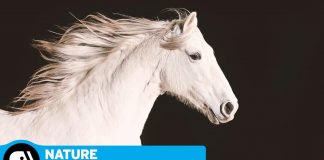When it comes to nutrition, Dr. Rallie McAllister says riders’ equine partners get the better deal. Equestrians view food as fuel for their horses’ well-being and performance, a view they don’t always extend to themselves. “Look at how we treat our horses,” McAllister notes. “They get the best feed and supplements. We need to take as good care of ourselves as we do our horses … In general, [our] number one value of food is based on calories. But we, especially women, need to view food as fuel for our bodies.”
- Mix it up: It takes a combination of carbohydrates, protein and fats to feed a body well. But concerns over calories often overshadow good common food sense. It’s important to ask the right questions, then choose the right foods. “Don’t ask, ‘How many calories?’ Ask, ‘Is it good for me?’” McAllister advises.
- Be balanced: Carbs found in whole grains; proteins found in low-fat cheeses, egg whites and lean meats; and fats found in fish such as salmon and sardines all work in concert to create a healthy diet — but only if their intake is balanced.”The brain requires fuel in the form of glucose, and carbohydrates provide an easily accessible supply of glucose,” McAllister says, but the right type of carbs are important. “Instead of carb-loading with sugary foods, have a piece of whole grain bread with an egg white omelet or with a piece of low-fat ham or turkey and cheese,” she suggests. “If you add protein with carbs, you’ll stay fuller longer.”
- Pick fruits and veggies: Salads, fresh vegetables and fruit all play a part in a balanced diet. The trick is having them on hand as an alternative to salty or sugary snacks. McAllister recommends keeping a pre-mixed salad in the fridge, and a bowl of fresh fruit in plain sight.
- Think small: Three meals a day might be the traditional American standard, but over-indulging at any one of them, or staving off between-meal hunger with quick-fix snacks packs on pounds. Instead, McAllister recommends eating several small meals throughout the day to prevent hunger and out-of-control snacking.
- Be prepared: Snacking isn’t a bad thing, especially after a workout or a ride. The trick is choosing healthy snacks and having them handy when hunger strikes. “Always keep nuts or fruit in your car or your bag to munch on when you get hungry,” McAllister says. “And always stay hydrated, preferably with water.”
- Drink smart: Water really is the best way to stay hydrated. It will quench thirst without adding calories. Sports drinks are also an option, but only under specific circumstances. “Save sports drinks for occasions when you’ve had strenuous activity, or if you’re working out or riding in very hot weather,” she says. “And eating a high-calorie meal with a diet soda just doesn’t make sense.”
Finally, understanding the connection between food and fitness is critical. “The main thing is more understanding of specific foods and what they do for us,” she says, “then taking responsibility for making the right food choices.”
Back to Get Fit to Ride >>






I love this article I have been looking everywhere for info on this please post more articles on Nutrition for Equestrians.
The article was a big help.Thanks!
Very nice article! I love to read about rider fitness and nutrition. Please provide more articles on this topic in the future.
This is great!
haha Yes, my horses eat waaayyyy better than I do…
In general I found the article to be helpful but as a 70yo dressage rider who competes, I find it hard to strike the right balance with my diet. At competitions last year I had to carry 2 or more whole wheat cheese sandwiches and several bottle of water with electrolytes. I also resorted to a box of chocolate-covered raisins before my last ride as I felt my energy level was slipping. Suggestions?
Great advice.